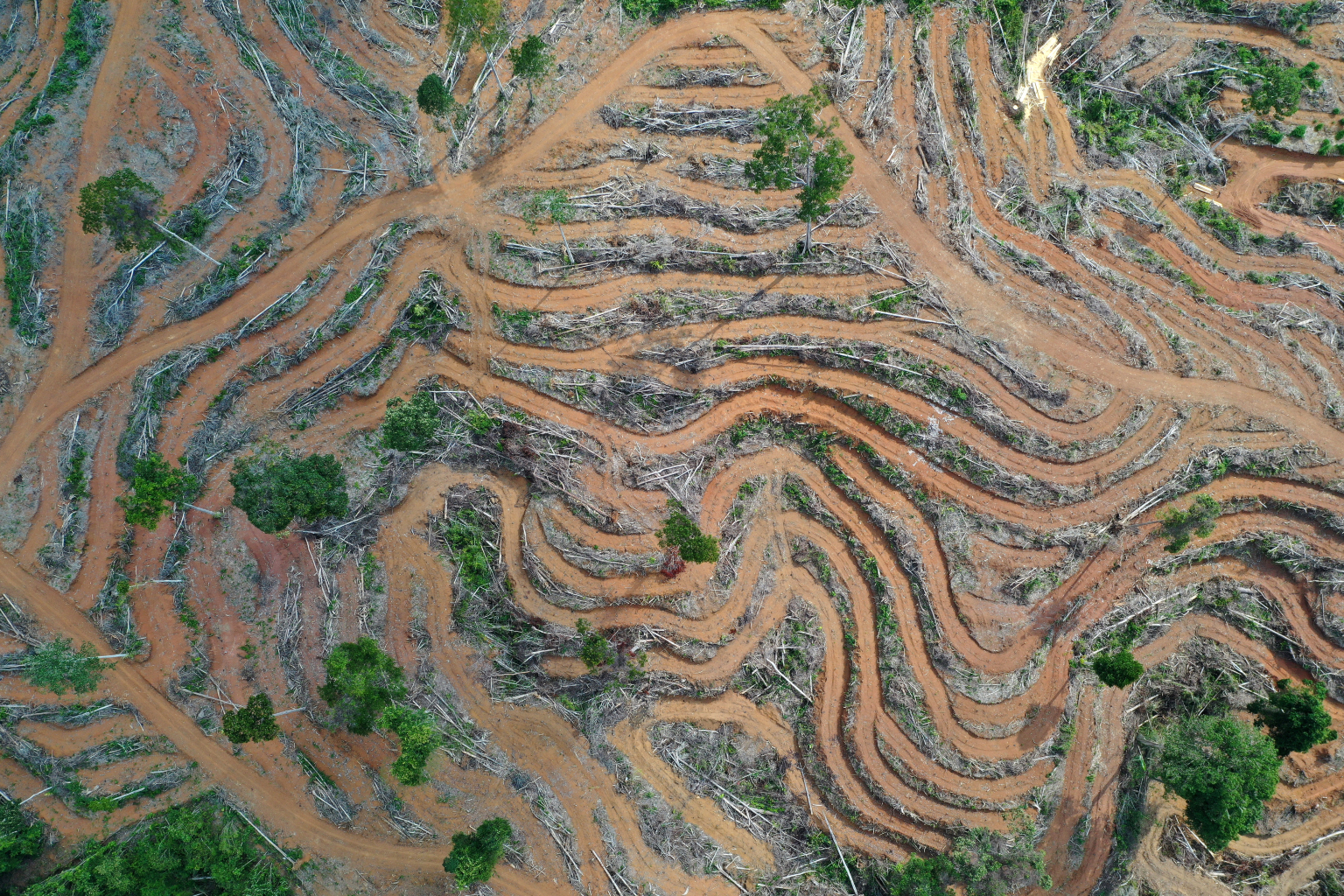ST Explains: What is Earth Overshoot Day, and how is it calculated?
Sign up now: Get ST's newsletters delivered to your inbox

A photo taken with a drone shows areas of forest that have been cleared for oil palm plantations in Bawa village, in Aceh, Indonesia.
PHOTO: EPA-EFE
SINGAPORE - Earth Overshoot Day is the day of the year when humanity's demand on natural resources exceeds a sustainable supply.
According to the Global Footprint Network, Earth Overshoot Day fell on July 28 in 2022, which means that between Jan 1 and that day, humanity's demand on the planet was equivalent to its entire year's regeneration.
The balance sheet consists of the demand for natural resources for food, clothing, land and materials to expand cities and for consumer goods on the one hand, and the planet's biological capacity to renew the supply on the other.
The demands on nature that compete for biological capacity include:
- food, fibre and timber
- space for roads and structures,
- energy production (from hydropower to biomass), and
- waste absorption, including carbon dioxide from fossil fuel or cement production.
Earth Overshoot Day is calculated for each country, based on 15,000 data points per country per year. The data comes from the United Nations.
Both the ecological footprint and biological capacity are expressed in global hectares, that is, globally comparable, standardised hectares with world average productivity.
Each city, state or nation's ecological footprint can be compared to its biological capacity, or that of the world.
Why is it important?
The date represents the growing mismatch between humanity's demand for resources and what nature can provide. That demand is damaging ecosystems such as forests, mangroves and grasslands, polluting the land, sea and air and fuelling climate change, which is compounding the threats facing nature.
Rising demand is literally stripping nature's cupboard bare and harming its ability to provide resources for future generations.
But as concerning as the trend is, the date also highlights the many solutions available to grow food more efficiently, cut carbon emissions, reduce waste and build greener and more efficient cities.
Focusing on these will reduce the stress on nature and benefit future generations.



